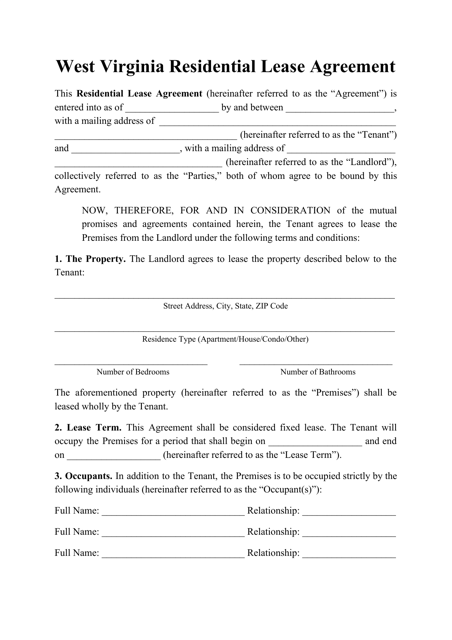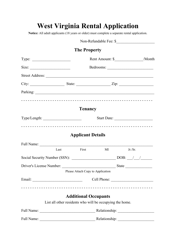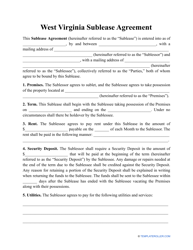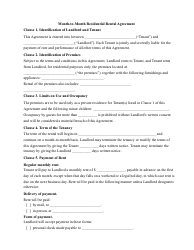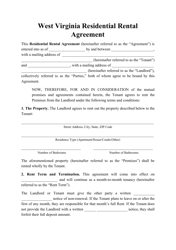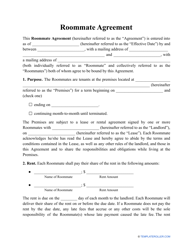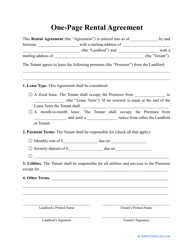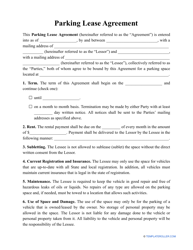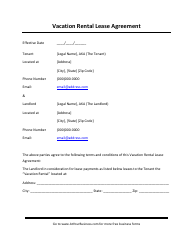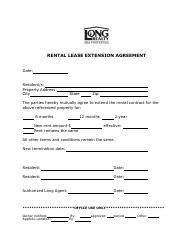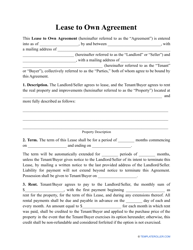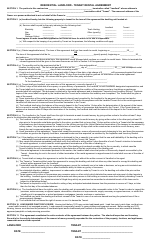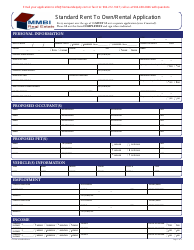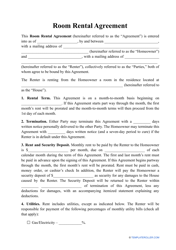Residential Lease Agreement Template - West Virginia
A Residential Lease Agreement Template for West Virginia is a legal document used to establish the terms and conditions of a rental agreement between a landlord and tenant for a residential property in the state of West Virginia.
The residential lease agreement template in West Virginia is typically filed and signed by both the tenant and the landlord. However, it is important to note that the lease agreement itself is not usually filed with a government agency.
FAQ
Q: What is a residential lease agreement?
A: A residential lease agreement is a legally binding contract between a landlord and a tenant that outlines the terms and conditions of renting a residential property.
Q: Why do I need a residential lease agreement?
A: A residential lease agreement provides both the landlord and the tenant with legal protection and clearly defines the rights and obligations of each party.
Q: What should be included in a residential lease agreement?
A: A residential lease agreement should include details such as the names of the landlord and tenant, the rental property address, the duration of the lease, rent payment terms, and any specific rules or restrictions.
Q: How long does a residential lease agreement last?
A: The duration of a residential lease agreement can vary, but it is typically for a fixed term, such as one year. It can also be month-to-month or week-to-week, depending on the agreement between the landlord and tenant.
Q: Can a landlord increase the rent during the lease term?
A: In West Virginia, a landlord cannot increase the rent during the lease term unless there is a provision in the lease agreement that allows for rent increases.
Q: What happens if a tenant breaks the lease?
A: If a tenant breaks the lease in West Virginia, they may be responsible for paying rent for the remainder of the lease term or until a new tenant is found, as specified in the lease agreement.
Q: Can a landlord evict a tenant without a reason?
A: In West Virginia, a landlord can only evict a tenant for specific reasons, such as non-payment of rent, violation of lease terms, or illegal activities. They must follow the proper legal procedures for eviction.
